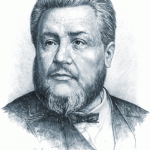 Dr. R. C. Sproul Jr of course cover the gamut of the issues in a brief piece, but can give some basic principles that I pray will help.
Dr. R. C. Sproul Jr of course cover the gamut of the issues in a brief piece, but can give some basic principles that I pray will help.
1. No one is allowed, save the Lamb, to look into the Book of Life, but there is no need to. Too often, especially in Reformed circles, the concern is expressed this way, “How can I know if I’m elect?” As a Reformed theologian let me clearly affirm that all the elect will be saved, and only the elect will be saved. But I will still ask, “Why would you want to know that?” We don’t believe in justification by election. If you stand before the judgment throne and God asks, “Why should I welcome you into My kingdom?” and you reply, “Because my name is in Your book” your name quite likely isn’t in His book. The issue isn’t the secret things of God, but what He has revealed.
2. Your obedience is not the bedrock of your assurance. Given the remains of sin within us it can be profoundly difficult to give a clear measure of our own spiritual growth. In fact I have been known to argue that the better we get the worse we seem to ourselves. That is, as we grow in grace we grow in our capacity to see our own sin more deeply. Which the devil delights to use to discourage us. It is Christ’s obedience that secures for us our eternity.
3. Your obedience is a part of your assurance. Be careful, especially when trying to help others, not to simply assume that all those struggling with assurance need to be assured. If you are living a lifestyle of unrepentant gross and heinous sin, you would do well to doubt your assurance. The center of the obedience I would call you to look for, however, would be here—believers are those who repent and believe.
4. Repenting is neither more nor less than crying out to God in Christ, “Lord be merciful to me, a sinner.” Believing is rejoicing in the faithfulness of His promise, that as we so repent, we go home justified. It is not the depth and power of your repentance that earns God’s favor. None of us repent as deeply as we ought, and so must ever repent for the weakness of our repentance. But Jesus came to save sinners.
5. If you fear you have committed the unpardonable sin, you almost certainly haven’t. Those who blaspheme the Holy Spirit do not have the Spirit in them to convict them for blaspheming the Spirit. If you find yourself obsessing over this question, it is almost certain that you obsess over other things and may be suffering from Obsessive Compulsive Disorder. If so, then you struggle with this fear, remind yourself a. that the fear is a good sign and b. Jesus died for sinners, including those struggling with OCD.
Bonus Point
Remember also that you are not called to answer this question alone. The elders of your church are called to judge the credibility of the professions of those under their care. They, of course, can and do err. But if they are concerned for your soul, you ought to be as well. If they are delighted to receive you as a brother, be a brother and receive them back with joy.Bonus Bonus Point
One great theologian ministers to those suffering a lack of assurance by asking these questions—Do you love the Lord with all your heart, mind soul and strength? And when they answer, “no” he asks, “Do you love the Lord as you ought?” And when they answer, “no” he asks, “Do you love Him at all?” He’s a wise man.
This post was first published on rcsprouljr.com


 Dr. Sinclair Ferguson, wrote this brief article “
Dr. Sinclair Ferguson, wrote this brief article “ Those answers make logical sense. But none of them completes Bellarmine’s sentence. What he wrote was: “The greatest of all Protestant heresies is assurance.”
Those answers make logical sense. But none of them completes Bellarmine’s sentence. What he wrote was: “The greatest of all Protestant heresies is assurance.” I would just add my own short comment here by asking this question: What prompted John to write his First Epistle? What was the motivation in John’s heart and mind?
I would just add my own short comment here by asking this question: What prompted John to write his First Epistle? What was the motivation in John’s heart and mind? I wrote the following transcript which is an excerpt from a sermon by Dr. Sinclair Ferguson on Romans 10:5-13:
I wrote the following transcript which is an excerpt from a sermon by Dr. Sinclair Ferguson on Romans 10:5-13: To John Townsend,
To John Townsend, Spurgeon’s pastoral wisdom in dealing with a woman lacking assurance. Concerning this Eddie Harper writes, but she was always fearing that she should never enter the gates of glory. She was very regular in her attendance at the house of God, and was a wonderfully good listener. She used to drink in the gospel; but, nevertheless, she was always doubting, and fearing, and trembling about her own spiritual condition.
Spurgeon’s pastoral wisdom in dealing with a woman lacking assurance. Concerning this Eddie Harper writes, but she was always fearing that she should never enter the gates of glory. She was very regular in her attendance at the house of God, and was a wonderfully good listener. She used to drink in the gospel; but, nevertheless, she was always doubting, and fearing, and trembling about her own spiritual condition. Luke 22: 31 “Simon, Simon, Satan demanded to have you, that he might sift you like wheat, 32 but I have prayed for you that your faith may not fail. And when you have turned again, strengthen your brothers.”
Luke 22: 31 “Simon, Simon, Satan demanded to have you, that he might sift you like wheat, 32 but I have prayed for you that your faith may not fail. And when you have turned again, strengthen your brothers.”